|
contents/no. 5
|
The Dark Side
h.d.
steklis |
|

Baboons in
Botswana, 2002
Iva
Spitzer
We’ve come to study baboons by day,
To an isle in a river where the lechwe play.
The question before us is not why baboons
ignore us,
For that they most certainly do.
But rather, the one, of when in a troop there’s
a coup,
And a newcomer male has seized control,
read more
|

|
|
Three Girls A
Comin'
david
tucker
|

|
She
weighed 192 pounds,
her ankles
oozed over her shoes.
She had facial hair
and butt hair
but when I came,
her orgasm
rushed across the room
to dance with mine.
Two stars
from a 40s movie
gliding across the terrace
slender,
rich
privileged.
She pouted,
she talked and talked
about her problems,
gifted artist,
drank too much,
didn’t like my dog,
didn’t like her self.
read more |
|
Ultima Ratio
Regum°
(on
announcement of intention to attack)
greg darms
|

|

Little medusa,
what do you have to do
with the killing brought on by killing?
You are free swimming, little more
than floating in your own necessity,
unknown as any fauna overlooked
in a complex system, by a higher order,
until stirred from your place in the warm mud
waters by my warm cupped hand.
And what have the ubiquitous sea slug,
°The
last argument of kings
(Engraved on French cannon by order of Louis XIV.)
read more
|
|
Ready to Look
lindsey
vona |
|
What
I’m ready to look at now is
sex with a punching bag on the side.
Unsafe edges, the rage of my resistances,
lost aspects of the self
disengaged, denied.
I’m not ready for anyone to touch me.
I’m not ready to hear that you love me.
This naked divide of ocean
read more
|
|

|
|
Flores Man°
bradley
earle hoge
|
 |

Imagine an
island
paradise
miniature elephants
miniature
horses
no thought of
an outside
world. You
have enjoyed
isolation for
so long
you have
evolved
small. You
have come
to believe
yours is the
only
legitimate
world.
And then a
giant steps
°Homo
floresiensis
read more
|
|
Future
Perfect
miriam
fried
|
| |
Leonie skimmed
through, folding back promising pages and humming. She felt that
her search for desirable male material linked her in some
mystical way to all the women of the past. But unlike them,
Leonie would be able to adjust for mistakes. That was the genius
of modern technology, and a money-back guarantee.
At one time,
it was common for parents to be surprised by suicidal
daughters and half-wit second sons. Much later it became
possible for doctors to run expensive tests on pregnant
women right after conception and predict, accurately and in
detail, the nature of the child expected to emerge. What
happened to the pregnancy after the tests was up to you. The
effect was that attractive politicians were no longer forced
to display
read more
|
|
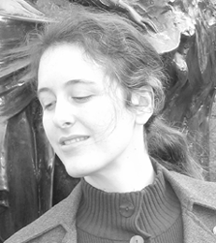
|
| |
| |
|
Puer Aeternus°
adrian
flange
|
|
Well, she didn’t
always exactly say no. Sometimes it was no and sometimes it was
maybe; which really meant no — at least to Peter, whose brain
chemistry only did yes and no, black and white, hot and cold.
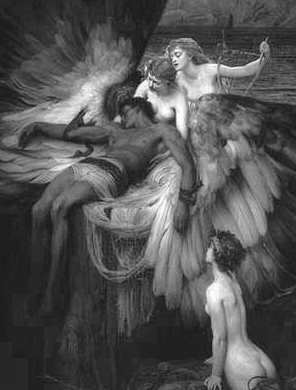
Lament for Icarus
H. Druper
K.E.
was a woman who pondered strange things, like how
mutations in the pleckstrin homology domain of dynamin 2
caused dominant intermediate Charcot-Marie-Tooth
disease, and why nasturtium leaves smelled like cocaine.
This is what Peter lovingly typed on his computer with a
smile. What an absurd beginning to "Puer
Aeternus" he thought to himself, and got back
into bed, his mind and energy wandering, restless. Sure,
he had finally just had a night of pretty good conjugal
sex after months of nothing, but it wasn’t
°Eternal
Boy
read
more
|
|
Don't Jump
Too Soon
john a.
musacchio
|
|
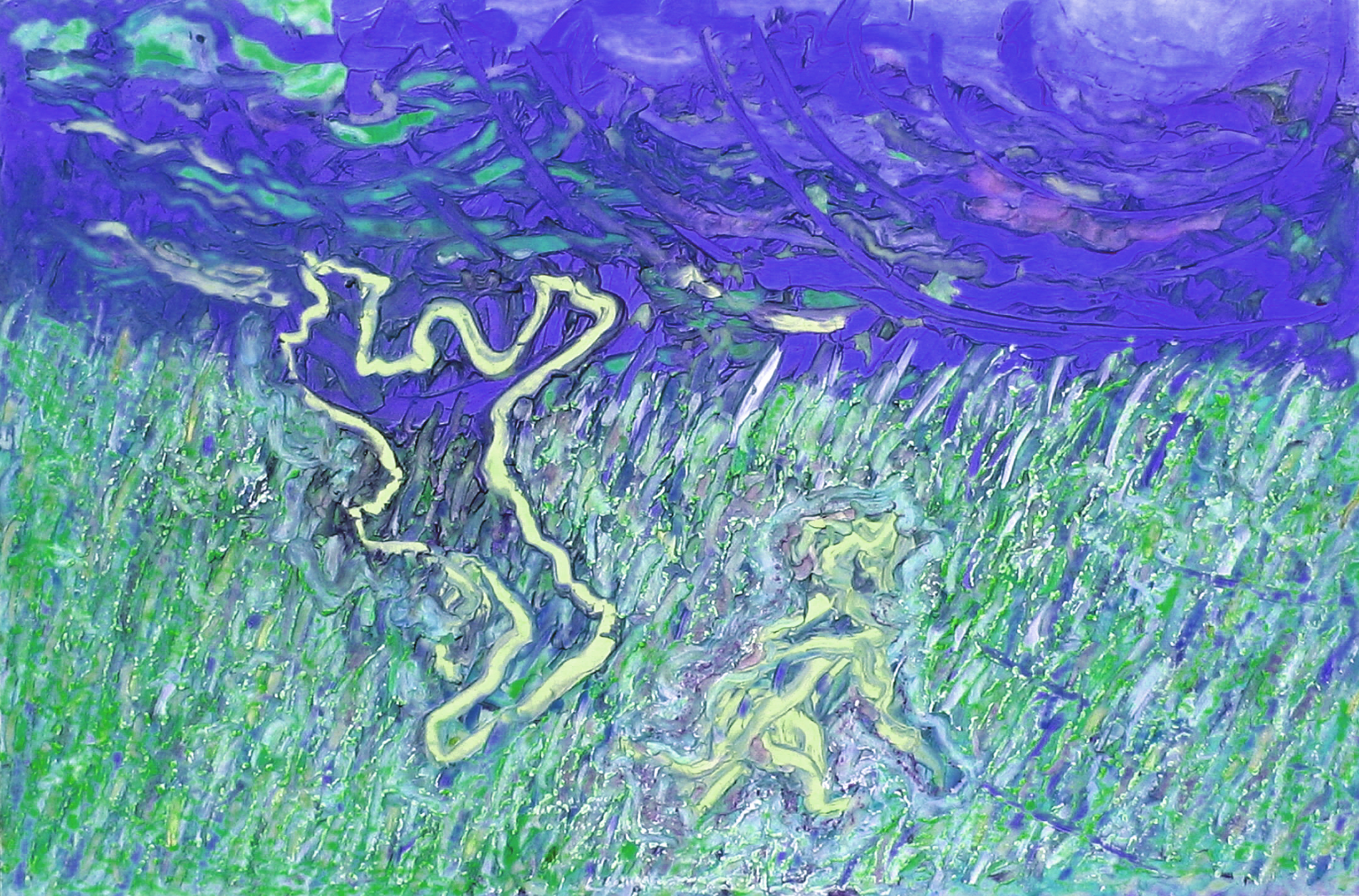
Megan JZ
...but a sudden
burst of something exploded from his heart and his veins and
his brain and his gut with a feeling that a bomb had gone off
inside of him.
"Well, hello there!" Her
voice was as sweet as dew-dripping honey, as cool as an autumn
breeze; this breeze blew ever so softly against his olfactory, as if its intention were to rustle the fallen leaves and
create an October symphony within the confines of his
eardrums.
read more
|
|
Morphic
Fields and Morphic Resonance
rupert
sheldrake
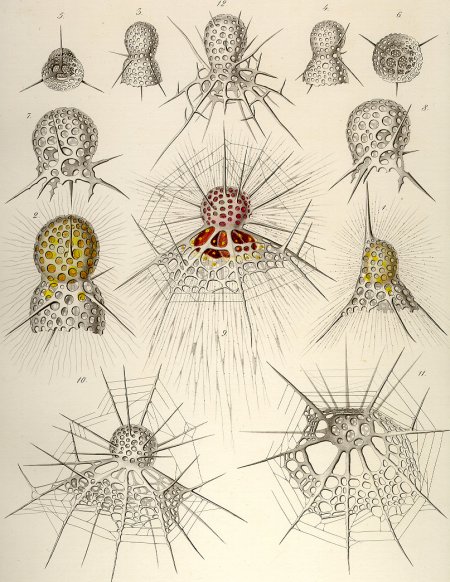
Ernst Haeckel Tafel, 06
|

|
I
believe that the natural selection of habits will play an
essential part in any integrated theory
of evolution, including not just biological evolution, but
also physical, chemical, cosmic, social,
mental and cultural evolution.
Habits are subject to natural selection; and the more often
they are repeated, the more probable
they become, other things being equal. Animals inherit the successful habits of their species
as instincts. We inherit bodily, emotional, mental and
cultural habits, including the habits of our
languages.
In
the hypothesis of formative causation, discussed in detail
in my books A
New Science of Life and
The Presence of the Past, I propose that memory is inherent in nature. Most of the
so-called laws of nature
are more like habits.
My interest in evolutionary habits arose when I was
engaged in research in developmental biology,
and was reinforced by reading Charles Darwin, for whom the
habits
read more
|
Literary authors present us with realized images of multiple
states of mind
—
of egos conscious of
themselves and others.
...We read and write literature, at least in part, because it is the
most specialized means by which we can exercise a vital adaptive
faculty — that of envisioning multiple points of view, of playing with
theory of mind. Through novels and plays we exercise that capacity the
way athletes or musicians exercise their special skills.
|
Very
few evolutionary social scientists have offered any view of
literary study, and fewer still have made reference to what
Darwinian literary scholars have had to say on this subject. In
that respect, Human Evolutionary Psychology, a textbook
by Barrett, Dunbar, and Lycett, is something of a breakthrough.
More importantly, the authors make a proposition about
literature that points us shrewdly toward a central link between
evolutionary cognitive science and the traditional literary
concept of “point of view.” They suggest that “individuals’
literary skills
read more
|
 |
| |
|
The Roots of
Omnology
howard
bloom |
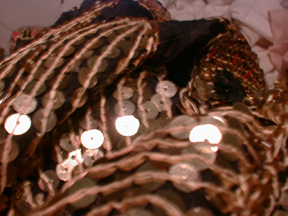
howard
bloom
|
“Omnology”
—
an academic base for the promiscuously curious, a discipline
that concentrates on seeing the patterns that emerge when one
views all the sciences and the arts at once.
Back in 2001, I wrote a
manifesto for a new discipline, “Omnology,” a field for those
with a gaggle of curiosities and with the potential to use their
multiple intellectual and artistic hungers to provide unusual
perspectives to the scientific community.
At least two major figures
tried to establish their own forms of omnology in the 19th
century. One was Herbert Spencer, who devoted his life to the
creation of a Grand Synthesis that
read
more
|

|
|
pauline uchmanowicz
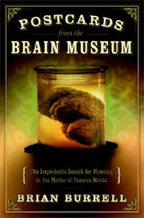 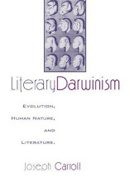 |

photo: carla rozman
|
Despite my general
misgivings that Joseph Carroll’s literary analyses offer
genuinely radical departures from New Criticism and other
formalist approaches, Literary Darwinism is nonetheless a
singular accomplishment.
How did human life and human nature in their complexities come
to exist? How does this combined humanness differ from the
tendencies of other species? What are brains for? Charles
Darwin famously
answered these questions in The Descent of Man, and
Selection in Relation to Sex (1871), a work in
which the theory of evolution, first promulgated in On the
Origin of Species (1859), was explicitly extended to the
one species humans tend to find the most interesting
—
their
own. Though widely accepted among biologists today,
Darwinian theory has been challenged since inception, most
recently by the so-called theory of
r ead more
|
|
|
|

Children's literature is no longer the exclusive domain of
amiable bears and purple crayons, if ever it was. On the
contrary, kid lit has finally been exposed as the dark,
unsettling, unsavory, undeniably captivating world that it is
and has been for some time.”
—
David Templeton, North Bay Bohemian
The Cat in the Hat Comes Back:
Two truant, latchkey children are terrorized by a recidivist
housebreaking feline grifter who manipulates and dominates the
youngsters as he wreaks havoc, reducing their small home to near
rubble through escalating acts of vandalism. Eventually they
succumb to Stockholm syndrome and identify with their captor,
colluding in his attempts to force 26 undocumented
aliens. ... Warning:
graphic depictions of fish abuse.
read
more
|
 |
|
art
|
Green
Symphony
jenny nelson
|
28" x 22"
oil on canvas
2004
|
|

|
As with any attempt to tell a
story, it is necessary to begin with a rough draft. The
first draft of a painting is made up of my initial attempts
to create shapes. I begin with loose lines. The first layer
is usually very unconscious and free flowing to build a
foundation from which a composition can grow. As the
painting progresses, I try to maintain the feeling of these
first unconstrained brush strokes, finding a balance between
areas of movement and areas of rest. Each painting has three
to ten layers. In this way each piece has a history of
various compositions underneath it, which may have existed
for weeks or merely hours. During these different phases I
find myself in lively conversations with the canvas,
focusing
read more
see more |
|
|

42"
x 36"
acrylic & graphite on canvas
2004
|
|
The elements in my paintings are composed of shapes that are
indistinct.
They may appear to
be something specific, but that remains in question. This
uncertainty, as well as their interaction within what appears to
be a landscape, activates a duality which is at the core of my
work: The knowable and the unknowable.... I strive to bring into
balance the common abstract nature that allows all things to
relate to each other, on a stage that is removed from specific
meanings.”
|
 |
|



























